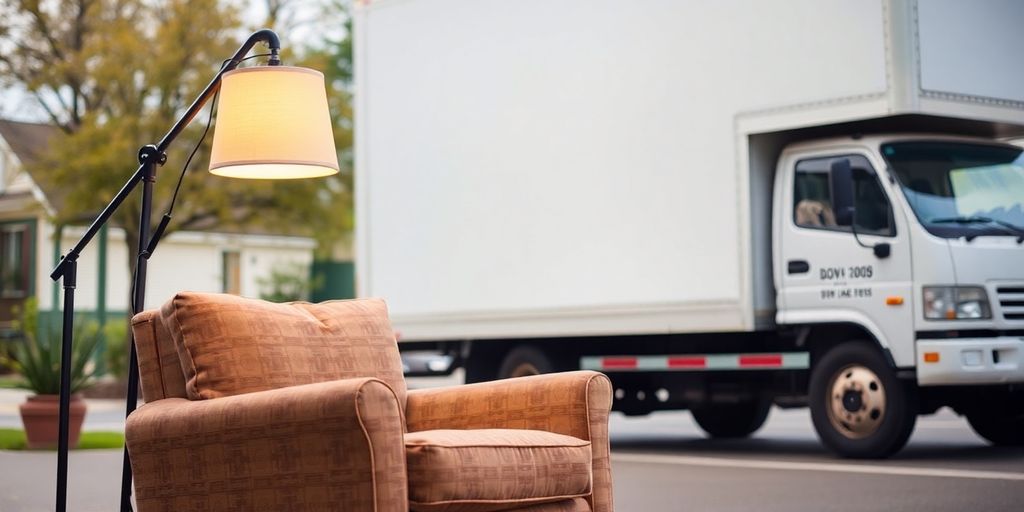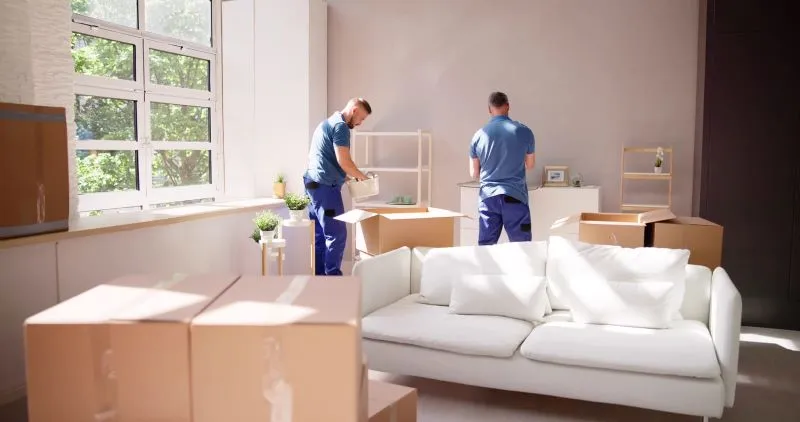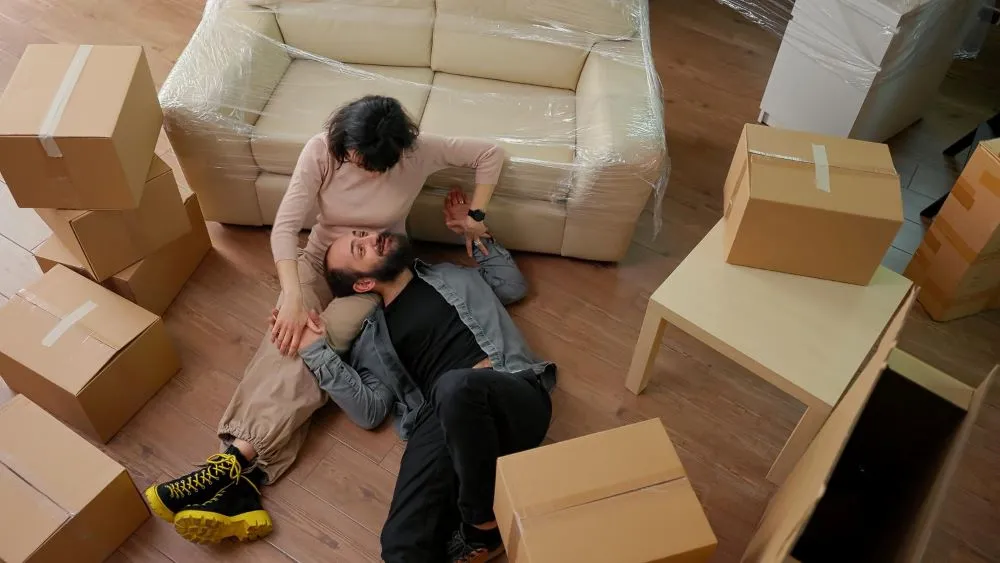Moving Soon? Where to Donate Furniture in Dupont Circle

Rassul Yeshpayev
September 19, 2025
Rassul Yeshpayev
September 19, 2025

Moving can be a hassle, right? Especially when you've got furniture you don't want to take with you. If you're in Dupont Circle and wondering where to donate furniture before a move in Dupont Circle, you're in the right spot. It's a great way to clear out your place and help others. Let's figure out the best options for your old stuff.
Key Takeaways
- Figure out what each place will take before you load up your car.
- Make sure your furniture is in decent shape – clean and not broken.
- Donating furniture can sometimes get you a tax break, so keep good records.
- Project B Green works with different charities and has drop-off spots.
- Goodwill is a common choice, but check their specific donation rules.
Donating Furniture in Dupont Circle: Key Considerations
Moving soon and wondering what to do with that old couch or extra set of lamps? Donating furniture in Dupont Circle is a great way to clear out your space and help others. But before you haul everything to the curb, there are a few things to think about.
Understanding Donation Guidelines
Every charity has its own rules about what they can accept. It’s not just about size; they also look at the condition of the items. Most places won't take anything broken, stained, or that smells bad. It’s always best to check the specific organization's website or give them a call before you pack up your car. This saves you a trip and makes sure your donation can actually be used.
Here's a general idea of what's usually accepted and what's not:
- Accepted: Sofas, chairs, tables, beds, dressers, bookshelves, lamps, rugs.
- Often Not Accepted: Mattresses (especially if stained or torn), large appliances (like refrigerators or washing machines), exercise equipment, baby cribs or car seats (due to safety regulations), and anything with significant damage.
Preparing Your Furniture for Donation
Giving your furniture a little TLC before donating can make a big difference. A quick wipe-down can remove dust and grime. For upholstered items, vacuuming them thoroughly can get rid of crumbs and pet hair. If there are any minor issues, like a wobbly leg or a loose screw, try to fix them if you can. It makes the item more appealing to the next person who might need it.
Think about it from the perspective of someone who might receive your donation. Would you be happy to get an item that's clean and in decent shape? A little effort goes a long way.
Tax Deductions for Furniture Donations
Did you know you might be able to get a tax deduction for your furniture donations? If you donate to a qualified charity, you can often deduct the fair market value of the items. You'll need to keep good records, like a receipt from the donation center. The IRS has specific rules about this, so it's a good idea to look them up or talk to a tax professional if you plan to claim a deduction. Generally, you'll need to itemize your deductions to benefit from this. The value you can claim is what someone would reasonably pay for the item in its current condition, not what you originally paid for it.
Local Organizations Accepting Furniture Donations
When you're getting ready to move, figuring out what to do with furniture you no longer need can feel like a chore. Luckily, there are some great places right here in the Dupont Circle area that can take your items and put them to good use. It's a win-win: you clear out your space, and someone else gets furniture they can use.
Goodwill Industries: A Familiar Choice
Goodwill is a well-known name, and for good reason. They accept a wide variety of donated items, including furniture. While some Goodwill locations might have specific size or type restrictions, it's always worth checking with your local store. Donating to Goodwill helps fund job training programs and community services, which is a pretty great way to give back. Just be aware that parking can sometimes be a challenge at their locations, and you might find that some stores are better stocked or organized than others. It’s a good idea to call ahead or check their website for the most current donation guidelines.
Project B Green: Supporting Multiple Charities
Project B Green offers a different approach. They work with various nonprofits and charities, collecting donations on their behalf. This means your furniture can help support a range of causes. They often have drop-off locations and even donation bins around the DC area, making it convenient to donate. Since they monetize your donations to support their partner charities, your contribution can have a broad impact. They also mention that donations are tax-deductible, which is a nice bonus. You can find out more about their specific needs and drop-off points on their website.
Other Community-Focused Charities
Beyond the larger organizations, keep an eye out for smaller, community-specific charities or shelters in the Dupont Circle vicinity. These groups often have very specific needs and can directly benefit from furniture donations. Sometimes, local churches or community centers might have programs that help families transitioning into new housing, and they are always looking for items like beds, tables, and chairs. A quick search for local social service agencies or housing assistance programs in the DC area might reveal smaller organizations that could use your help. For instance, organizations that help set up workspaces for nonprofits might also coordinate furniture donations, like Calderon Enterprises.
When donating furniture, it's always best to call the organization first to confirm they can accept your items and to understand their specific drop-off times or pick-up policies. This saves everyone time and hassle.
Convenient Drop-Off and Pick-Up Options

So, you've decided to donate some furniture before your big move. That's awesome! Now, how do you actually get those items to the charities? It's usually a two-part question: where do you take it, and can someone else do the heavy lifting?
Locating Donation Centers Near Dupont Circle
Finding a donation spot close to Dupont Circle is pretty straightforward. Many organizations have drop-off locations scattered throughout the city. You'll want to check the specific hours and what types of items they accept before you head out. Some places might be picky about what they take, so a quick call or website check can save you a trip.
- Goodwill: There are several Goodwill locations in the DC area. While one might not be right in Dupont Circle itself, you'll likely find one within a short drive. Parking can sometimes be a challenge at these spots, so keep that in mind.
- Project B Green: This organization partners with various charities and has multiple drop-off points and bins. They aim to make donating easy and support multiple causes with your contributions.
- Local Thrift Stores: Don't forget about smaller, independent thrift stores. They often serve specific community needs and might be happy to take your furniture.
Arranging Furniture Pick-Up Services
If loading up your car and driving to a donation center sounds like too much work, especially with a move looming, a pick-up service is your best bet. Many charities offer this, or you can hire a professional moving company. For example, BoxStar Movers can help with more than just moving your belongings; they also offer junk removal and can transport items to donation centers for you. This is a great way to clear out unwanted items without the stress.
When scheduling a pick-up, be sure to:
- Confirm the date and time.
- Clarify what items they will take.
- Ask about any associated fees.
Donation Bin Availability
While donation bins are super common for clothing and smaller household goods, they're less frequent for furniture. You're more likely to find bins for textiles and smaller items. For larger pieces like sofas, tables, or beds, you'll almost always need to use a drop-off center or arrange a pick-up. It's just not practical to stuff a dresser into a bin!
When considering donation options, think about the condition of your furniture. Charities are usually looking for items that are gently used and free from major damage. This helps them serve their mission more effectively and reduces the burden on their staff to repair or dispose of unusable items.
Remember to check the specific policies of each organization regarding what they can accept and how they prefer donations to be dropped off or picked up. It makes the process smoother for everyone involved.
Maximizing Your Furniture Donation Impact
So, you're getting ready to move and have some furniture you're looking to pass on. That's great! Donating furniture can really make a difference for others, and it feels good too. But how do you make sure your donation does the most good?
Choosing Charities Aligned with Your Values
Think about what kind of impact you want to make. Are you passionate about helping families get settled, supporting job training programs, or assisting people experiencing homelessness? Different organizations focus on different needs. For instance, some charities might provide furniture directly to families in need, while others might sell items in their thrift stores to fund their broader programs. It's worth a few minutes to check out the websites of places like Project B Green to see what their mission is and how your donation fits in.
Ensuring Furniture is in Good Condition
This is a big one. Most places appreciate donations, but they can't accept items that are broken, stained, or generally falling apart. They often have to pay to dispose of unusable items, which takes away from their ability to help others. So, before you pack it up, give your furniture a good once-over. Is the upholstery clean? Are there any major rips or tears? Does the frame feel sturdy? Clean, usable furniture is always the most impactful.
Here’s a quick checklist:
- Upholstery: Check for stains, tears, pet hair, and odors.
- Wood Furniture: Look for deep scratches, water damage, or wobbly legs.
- Mattresses: These are often the hardest to donate if they have stains or are past their prime.
- Electronics: Ensure they are in working order.
The Benefits of Donating Before Your Move
Donating furniture before you move can seriously lighten your load, both literally and figuratively. Instead of paying movers extra to haul bulky items or trying to sell them last minute, donating is a straightforward way to clear out your space. It saves you time and hassle during an already busy period. Plus, knowing your items are going to a good cause can bring a sense of peace as you transition to your new home.
Making a donation before you move can simplify your moving day considerably. It reduces the number of items you need to pack, transport, and unpack, freeing up your time and energy for more important tasks related to your relocation.
Navigating Donation Challenges

Sometimes donating furniture isn't as straightforward as you'd hope. You might run into a few snags, but don't let that stop you from giving your items a second life. It's all about knowing how to handle the tricky bits.
Dealing with Difficult-to-Move Items
Got a giant, heavy sofa or a massive armoire? Moving these yourself can be a real pain, and some charities might not be equipped to handle them. Before you even try to budge it, check with the donation center. Many places have specific rules about item size and weight for pick-ups. If it's too much for them, you might need to look into professional movers who specialize in hauling large items, or even junk removal services if the item is beyond repair or donation.
Finding Alternatives for Unsuitable Furniture
Not everything can be donated. Stains, rips, or general wear and tear can make furniture a no-go for many charities. If your item isn't in good enough shape for donation, don't just toss it out. You could try selling it online for a low price, giving it away on local community groups, or even repurposing parts of it if you're crafty. For items that are truly unusable, consider recycling options available in the DC area. Sometimes, even broken furniture can be broken down for materials.
Understanding Donation Center Policies
Every donation center has its own set of rules, and it's really important to know them beforehand. This can save you a lot of hassle. Things like:
- What they accept: Some places only take certain types of furniture, like sofas or tables, and might refuse mattresses or large appliances.
- Condition requirements: Most places want items in good, usable condition. Expect them to turn away anything with significant damage.
- Pick-up availability: If you need a pick-up, find out their schedule, any fees involved, and how far in advance you need to book it.
- Drop-off hours: Make sure you know when their donation doors are open. Showing up after hours won't do anyone any good.
It’s always a good idea to check the charity's website or give them a quick call before you load up your car. For instance, if you're looking to donate in the Dupont Circle area, understanding the specific requirements of places like Goodwill Industries can prevent a wasted trip.
Moving can be tough, and sometimes unexpected issues pop up. Don't let these hurdles stop you! We've got helpful tips to make your move smoother. Ready to plan your next move with ease? Visit our website today for expert advice and services.
Donating Your Furniture in Dupont Circle
So, you're moving out of Dupont Circle and have some furniture you don't need anymore. It's great that you're thinking about donating it instead of just tossing it. There are a few good places around that can take your items, like Project B Green, which works with charities and gives you a tax deduction. Remember to check their specific donation guidelines before you go. Giving away your old furniture can really help out local groups and keep good stuff out of the landfill. It’s a simple way to make a difference as you start your next chapter.
Frequently Asked Questions
What kind of furniture can I donate?
Before you give away your furniture, check if the charity can use it. Most places want items that are clean, not broken, and still usable. Think about whether someone else would want to buy or use it. Give the charity a call or check their website to see what they accept.
How do I get my furniture to the donation place?
Some charities offer to pick up larger items like sofas or beds right from your home, which is super helpful when you're moving. You can also take your items to a donation center yourself. It’s a good idea to call ahead to confirm if they offer pick-up services and what their rules are.
Can I get a tax deduction for donating furniture?
Yes, you can usually get a tax break for donating furniture! Keep a record of your donation, like a receipt from the charity. You'll need this when you file your taxes. Make sure the charity is a registered non-profit organization.
Which charities in Dupont Circle accept furniture?
Organizations like Goodwill are well-known places that take furniture and other household goods. There are also groups like Project B Green that work with different charities to collect items. It's always best to look up local places near Dupont Circle that help people in need.
What if my furniture is not in good condition?
If your furniture is too worn out, broken, or stained, many charities won't be able to accept it. In that case, you might need to hire a junk removal service to haul it away, or see if there are local recycling options for furniture.
Why is donating furniture before moving a good idea?
Donating furniture before you move is a smart move! It helps you get rid of extra stuff easily, saves you moving costs, and your items can help someone else who needs them. It’s a win-win situation for everyone involved.












